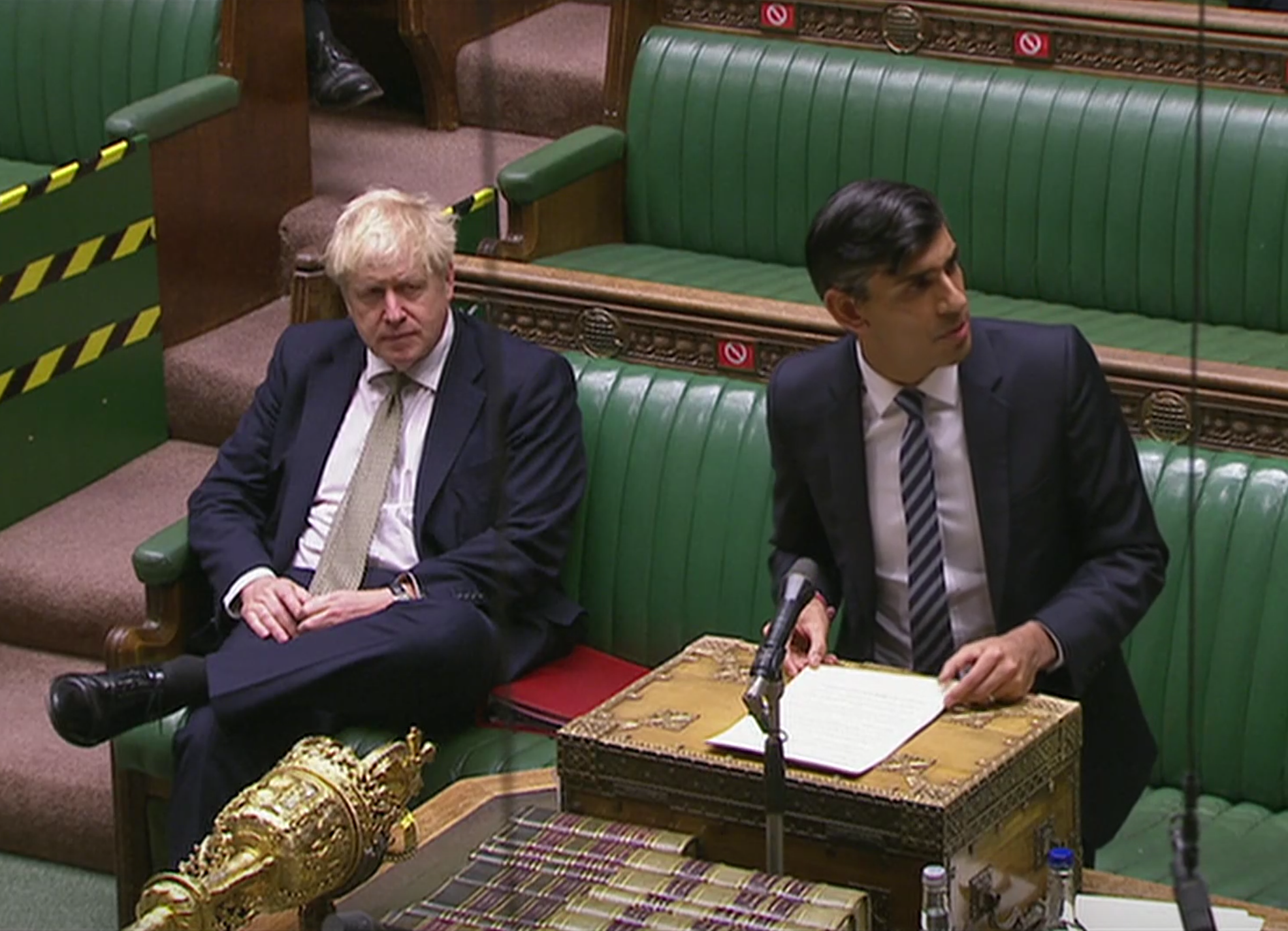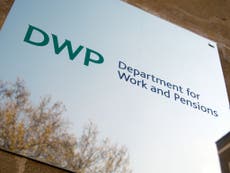Will Boris Johnson let the emergency rise in Universal Credit be cut in April?
The future of the higher rate of UC is in doubt, says John Rentoul. Rishi Sunak is likely to argue that a permanent increase in benefits cannot be afforded once Covid restrictions are lifted


When the coronavirus crisis struck, Rishi Sunak, the chancellor, took emergency action to avert hardship and boost the economy by raising universal credit by £20 a week. The rise was intended to be temporary, lasting until April, but soon he and Boris Johnson will have to decide what to do next.
The rise was welcomed in all quarters. Despite a decade of Conservative cuts to welfare, the chancellor accepted that the furlough scheme would not cover everyone adversely affected by the lockdown and subsequent restrictions, and therefore that a simple increase to the standard allowance was fair. It was also another way of pumping money into the economy, and keeping more people in jobs as a result.
The rise in universal credit is not as expensive as the furlough scheme, but it would cost £6.6bn a year, adding about a tenth to the cost of the benefit, according to the Institute for Fiscal Studies (IFS), on top of the increase in the number of families claiming universal credit in the crisis, up from 2.6 million to 4.2 million.
It is widely accepted that the furlough scheme, which was extended in October, will stop at the end of March. By spring, the government hopes that economic activity will be well on the way back to normal, thanks to vaccines, and that there will be no justification for paying people not to work.
But the future of the higher rate of universal credit is still in doubt. Sunak didn’t mention it in his spending review statement last week, but well-sourced reports suggest that it will be extended. Johnson was said by The Times a month ago to have secured Sunak’s agreement “in principle” to extend the payments for another year – although Treasury sources were quoted as saying that no final decision had been made.
The decision is part of the battleground in the traditional war between a prime minister who wants to spend public money and a chancellor whose job it is to maintain a horror of borrowing. Johnson prevailed upon Sunak to extend furlough for five months longer than originally intended, and obviously thinks he has won this argument too.
But I suspect the Treasury hasn’t given up on this yet. Sunak is likely to continue to argue that, once the coronavirus restrictions are lifted, such a permanent increase in state benefits cannot be afforded. He will be up against many One Nation Tories – currently including the prime minister – who argue that state benefits need to be more generous anyway. The Labour Party points out that benefits, especially for people without children, have become degradingly low over time (including during the New Labour years, when support was focused on families with children). The rise in food banks is often attributed to stricter rules on work-search and availability, but the low level of standard universal-credit rates must also be a factor.
The other practical argument in favour of continuing the higher rate is that it will make it easier to complete the changeover to universal credit, which is still being rolled out on a repeatedly delayed timetable, now stretching to 2024. It was part of George Osborne’s scorched-earth legacy to make deep cuts to benefits at the same time as trying to switch them to the new “simplified” system.
It may be that the prime minister will get his way, and the higher rate of universal credit will be extended for another year, before the argument resumes in the year after that, but the absence of an announcement suggests that a rearguard action is being fought.
It is possible that a lower rate might be set instead, as part of a plan to phase out the increase over a number of years, or that other changes, such as to the housing benefit element of universal credit, might be made to claw back some of the money.
In the end, although the prime minister and the chancellor are the main decision-makers, what they agree has to get through the House of Commons. If the Treasury wants to claw back some of what the IFS calls the biggest increase of the past 45 years to the entitlements of out-of-work claimants without children, it will have to calibrate it against the views of a critical mass of Conservative MPs. There are a number of Tories who think the welfare system should be more generous, and would be prepared to vote with Labour and the other opposition parties to ensure it.
The fate of the £20-a-week uplift in universal credit depends on the aggregate views of the 40 or 45 most pro-welfare Tories in the Commons.




Join our commenting forum
Join thought-provoking conversations, follow other Independent readers and see their replies
Comments